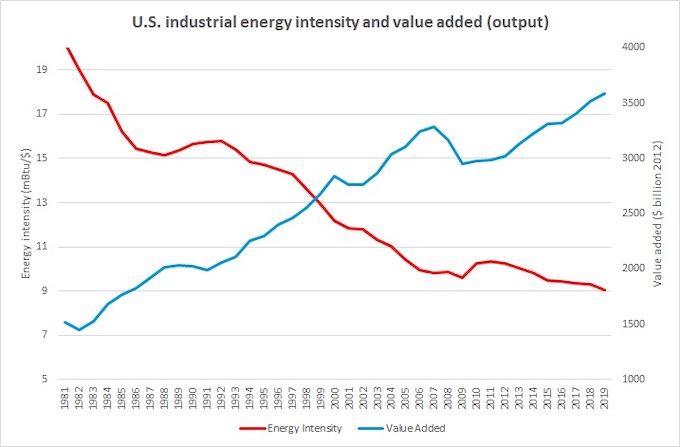U.S. industrial energy intensity—the energy use per dollar of industrial production—decreased by 2.5% in 2019, continuing a decades-long trend. The new data was published recently by the Energy Information Administration.
Industrial energy intensity has been cut by more than half since 1980, with advances interrupted by two recessions. Thus, even as industrial output (we use value added for this chart) has more than doubled, total industrial energy use in the United States (not shown below) is about the same as it was in 1980. But progress in reducing energy intensity in the sector has been less rapid since resuming in 2012.
Source: EIA April 2020 Monthly Energy Review; BEA Industry Data
Chemical plants account for almost half of today’s industrial energy use, with oil refineries, paper mills, and steel mills accounting for much of the rest. Overall energy intensity improvements are due to both efficiency improvements in specific industries and structural shifts in the economy, as less energy-intensive subsectors grow more rapidly. In recent years, most of the progress appears to be due to structural change as low natural gas prices have decreased the incentive for efficiency measures.
Decreased industrial output during recessions tends to lead to higher energy intensity, as production drops more than energy use. Thus, we expect that the partial shutdown of industry this year may again disrupt the trend to lower intensity.
In the longer term, we need much greater energy savings to achieve needed decarbonization of industry. In fact, ACEEE’s analysis of how energy efficiency measures alone can cut projected U.S. carbon emissions in half by 2050 includes sharply reducing current industrial energy intensity to get there. Clearly, we need to step up efforts.
More data and information about energy efficiency trends and impacts are available in the Energy Efficiency Impact Report released in December.


